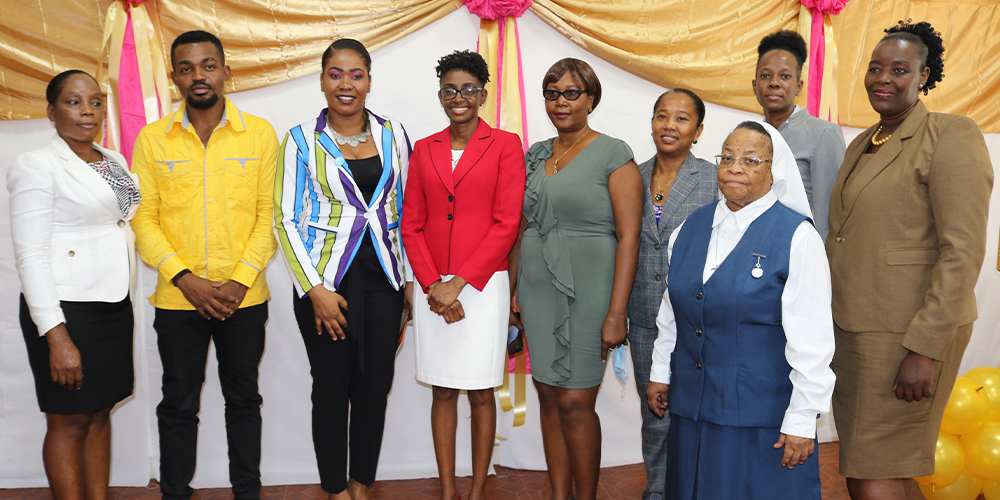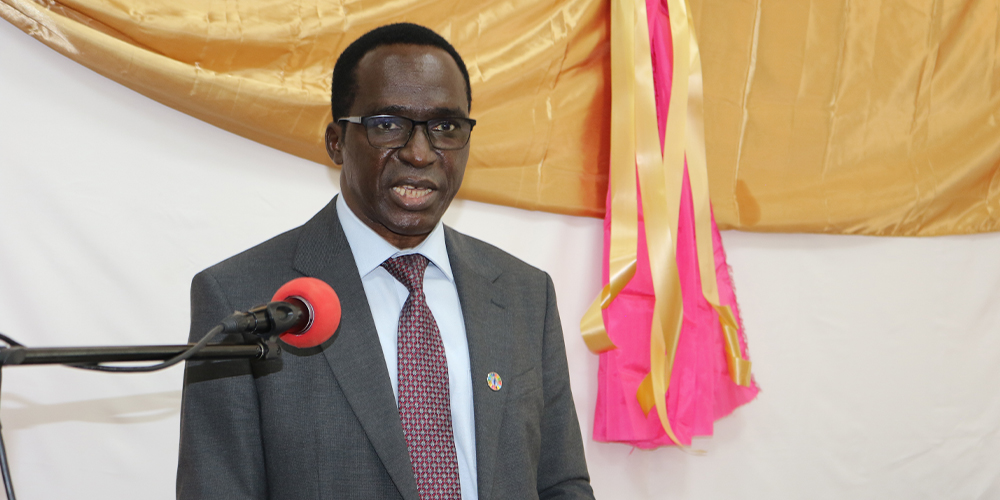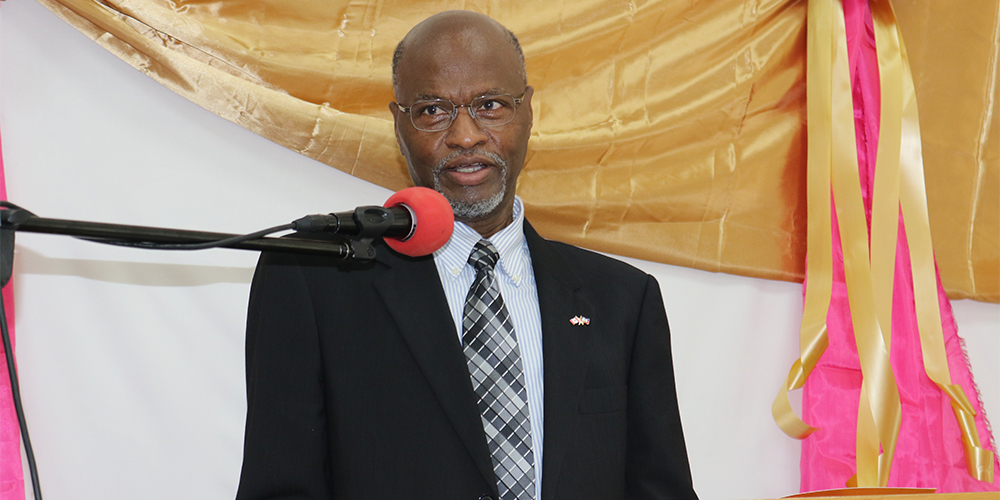“All the senior students of the National Higher Institute of Midwife Training, now a three-branch State faculty, will undergo a State Exam based on the competence referential of the Ministry, besides a final assignment, to validate their State diploma", announced the Minister of Public Health and Population, on December 17, 2021.
Delicate Task to Achieve
Alex Larsen reminded the delicate task of this faculty, which will be evolve under umbrella of the Board of the State University of Haiti, consisting in "training young people who will have to contribute to meet 2 big challenges: maternal mortality, which is high and stable despite efforts made in the health sector; and neonatal mortality which is a major cause of infant mortality."
Program Already Approved
The Rector of the State University of Haiti revealed that the Academic Council of the University has already approved that midwife training program. “The Henri Christophe Campus of Limonade has already recruited a first cohort of this Faculty of Midwife in the North”, added Fritz Deshommes. “The courses have already started”.
Renewed Commitment and Mission
The Dean of the Faculty of Midwife committed herself to organize, administer this three-branch institution (West, North and South) with reliability and integrity.

Nadege Daudier reminded that “the mission of the Faculty of Midwife is to produce, transfer and spread knowledge, providing initial and life-long training to highly skilled professionals, to take on social and medical care related to sexual and reproductive health, pregnancy, delivery and postnatal follow-up care for the mother and the newborn, and also to favor the development of research, collectivity services and social involvement of members and students in the different matters that can help improve the health conditions of the Haitian population.”
The Midwives and the Achievement of the 3 Transforming Results
“Qualified and well dispatched Midwives will contribute efficiently to achieve the three transforming results Haiti has committed to under the Agenda of Sustainable Development by 2030, namely, Zero evitable maternal death, Zero gender-based violence and fatal practice”, mentioned the Representative of UNFPA in Haiti.

The causes, the 4 Toos and the 3 delays
Saidou Kabore highlighted the main causes of maternal deaths and some delays and toos.
“Maternal deaths are related to pregnancy obstetrical complications, heavy bleedings, infections, high blood pressure, dystocic labor, and some incorrect interventions, omissions, treatments or cascading events resulted from one of the above mentioned factors”, reminded he. “They are also induced by preexisting illnesses or affections that show up during pregnancy, without any direct obstetrical causes.”
The 4 Toos indicated by Kabore: Too many pregnancies (more than 6 children), too close pregnancies (less than 2 years), too late pregnancies (more than 35 years), too early pregnancies (less than 20 years). The 3 delays: delay in the decision to consult health services, delay in reaching a health facility, delay in dealing with obstetrical emergency care.
“To meet these challenges, the role of the Midwife is crucial by the sides of women and their respective communities”, deemed Kabore.
The representative of UNFPA acknowledged the Government of Canada and expressed his profound gratitude for their ongoing support in fighting inequalities of genre, and in promoting women health right, an unavoidable condition for the sustainable development of the country.
Canada and the Reinforcement of the Profession of Midwife
Canada will continue to support the reinforcement of the profession of midwife in Haiti, said the Embassy Aid Chief Assistant. Alou Dicko reminded some elements of the sanitary context: 1 Midwife for 5000 inhabitants, 329 deaths for 100000 living births, 2/3 of deliveries occur without appropriate medical management.

The SAJ Fanm Pou Fanm project, launched in 2019, is subsidized by Global Affairs Canada (GAC) and executed by United Nation Population Fund (UNFPA), in collaboration with the Association of Midwife Nurses of Haiti (Association des Infirmières Sages-Femmes d'Haïti, AISFH). Their main partners are the Canadian Association of Midwives (CAM), Université du Québec à Trois-Rivières (UQTR) and the Ministry of Public Health and Population (Ministère de la Santé Publique et de la Population, MSPP).
The Saj Fanm pou Fanm project aims at contributing to reduce maternal and neonatal mortality through the improvement of access to sexual and reproductive care for women and girls, especially in 4 departments across the country (Grand’Anse, Southeast, Nippes and Northwest), focusing on the reduction of inequalities of genre and the reinforcement of women and girls’ capabilities so they can make choices in line with their sexual and reproductive rights.
Texte : Vario Sérant
Photos : Jhunie Ganème et Vario Séran


